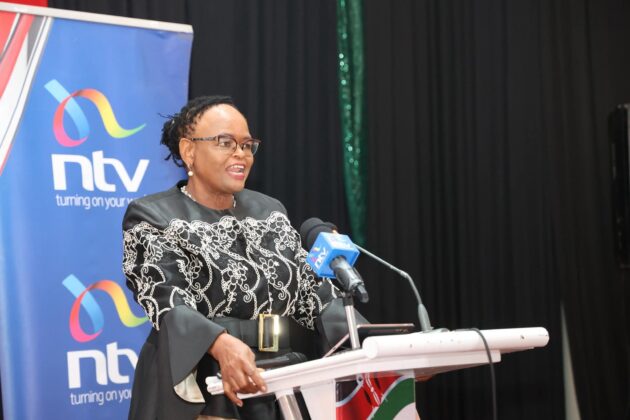
CJ Koome terms the Constitution a transformative governance framework » Capital News
NAIROBI, Kenya, Aug 27 – Chief Justice Martha Koome has reaffirmed the transformative power of the Constitution of Kenya, 2010, describing it as a catalyst for good governance, social justice, human rights, equality, and accountability.
Speaking at the 15th anniversary celebration of the Constitution—commemorated during a Katiba Day event convened by the Nation Media Group—CJ Koome said the 2010 Constitution marked a turning point for the Judiciary. It entrenched judicial independence, redefined accountability, and placed access to justice at the core of Kenya’s justice system.
“Fifteen years later, we can look back with pride at the distance we have travelled, while reflecting on the persistent challenges that continue to hinder the full blooming of the Constitution’s promise of social transformation. The Judiciary has undergone profound reform, developed transformative jurisprudence, and expanded access to justice for all,” she said.
In her keynote address at the event Themed, “Fifteen Years Later: The Constitution and Us”, the CJ highlighted the Judiciary’s progress since the Constitution’s promulgation. tracing the institutional reform journey through three major frameworks: The Judiciary Transformation Framework (JTF) under CJ Mutunga, Sustaining Judiciary Transformation (SJT) under CJ Maraga, and the ongoing Social Transformation through Access to Justice (STAJ) strategy, which will guide reforms through to 2033.
“The greatest outcome of these reforms has been the strengthening of judicial independence. Kenyan courts have demonstrated courage in asserting themselves as defenders of constitutionalism, earning respect across Africa and beyond,” Koome said.
She highlighted the Supreme Court’s ruling in the BBI case, which upheld the sovereignty of the people; the Mitu-Bell and Musembi decisions on housing rights; the 2023 ruling upholding freedom of association for LGBTQ+ persons; and the Muruatetu decision, which declared the mandatory death penalty unconstitutional, marking a major milestone in criminal justice reform, as some of the landmark achievements in jurisprudence.
CJ Koome emphasized the Judiciary’s transformation which she noted extended beyond jurisprudence adding that court infrastructure has expanded significantly, with High Court stations and registries now established in all 47 counties, ensuring wider access to justice.
Digitisation, she noted, has been among the most transformative reforms. The e-filing system launched in Nairobi in 2020—and extended nationwide in 2024—has replaced paper-based processes, allowing litigants to file cases, pay fees, and attend hearings online. Real-time dashboards and online cause-lists have enhanced transparency and accountability, while virtual hearings and AI-powered transcription tools have helped reduce delays and improve efficiency.
“Litigants can now access justice online, pay fees electronically, and even attend hearings virtually. These digital innovations have expanded access to justice and transformed the delivery of judicial services.” She explained.
Despite these strides, the Chief Justice acknowledged ongoing challenges including chronic underfunding, case backlogs, and emerging threats to judicial independence such as cyberbullying and coordinated misinformation campaigns targeting judges.
“Criticism of court decisions must follow lawful channels—not digital harassment,” she warned. She reaffirmed the Judiciary’s commitment to internal accountability mechanisms, revealing that the Judicial Service Commission (JSC) has handled 946 judicial complaints since 2010.
Calling for increased budgetary support, CJ Koome decried the Judiciary’s current allocation of less than 1 per cent of the national budget, despite its crucial role on par with sectors such as health and education.
Chief Justice reassured Kenyans of the Judiciary’s unwavering commitment to upholding the Constitution. “We will continue to administer justice without fear or favour, check abuses of power, and defend the rights of all Kenyans,” she affirmed.
Speaking at the same event the Chief Registrar of the Judiciary Winfridah Mokaya said that It has been the Judiciary’s role to fiercely and constantly patrol the boundaries of the Constitution, ensuring that no person or institution operates beyond these boundaries, and – ultimately – helping with the realization of the dreams and aspirations of the Kenyan people, as encapsulated in the Constitution.